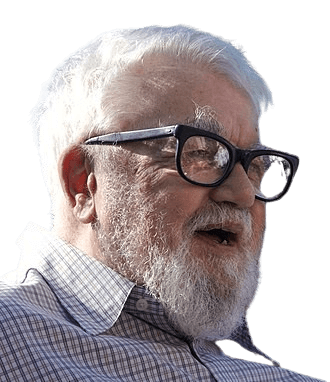Life and achievements
Early life
John McCarthy was born in Boston on September 4, 1927, to a family that was very much involved in politics. His father, John Patrick McCarthy, was an Irish immigrant and a labour union leader, while his mother, Ida Glatt McCarthy, was of Lithuanian Jewish origin. Their parents were members of the Communist Party but supported critical thinking and education. McCarthy’s childhood was full of moves owing to the Great Depression, but McCarthy’s curiosity and love for learning never suffered. From an early age, he became interested in science, reading popular science books and learning mathematics independently.
At 17, McCarthy joined Caltech and proved his mathematical prowess. He could exempt the first two years of his math classes by reading math books by himself. He left Caltech for some time but returned to the same university to finish his bachelor’s degree in mathematics in 1948. His love for mathematics and logic made him join the Ph.D. program at Princeton University, and his supervisor was the mathematician Donald C. Spencer. In his academic career, McCarthy was driven by the need to know the basis of Artificial and human intelligence.
Legacy
John McCarthy has significantly impacted computer science, especially artificial intelligence and interactive computing. He also developed Lisp, a programming language that significantly changed AI. Lisp could work with symbols, which are very important for AI; therefore, it was the language of choice for all AI applications in the 1960s and 1970s. Aside from Lisp, McCarthy’s work in time-sharing systems paved the way for the current computing paradigm, such as the cloud. His early vision of computation as a service, where users could similarly purchase computing power as they buy water from a municipal water supply, was visionary, given the development of distributed computing and the Internet.
McCarthy’s work also involved philosophical discussions regarding machines' intelligence and thinking. He thought that AI systems could be made to feel like human beings, come up with solutions to problems, and arrive at conclusions. His contribution to AI in handling fundamental real-world uncertainty through his work on circumscription, a technique for handling incomplete information and non-monotonic reasoning, cannot be overemphasized. McCarthy’s vision of AI was not only in terms of technical issues; he considered it as a philosophical question of what intelligence is.
Over the years, McCarthy has been honoured for his contributions to computer science. In 1971, he received the Turing Award for his contribution to Artificial Intelligence, and in 1990, he received the National Medal of Science. This is still the case, as artificial intelligence is still an ongoing development that impacts society. McCarthy’s idea of artificial intelligence, which can reason and learn, is still a significant field focus, and his contributions are still relevant today.
Milestone moments
Mar 20, 1956
The Dartmouth Conference and the Emergence of Artificial Intelligence.
In the summer of 1956, John McCarthy co-organized the Dartmouth Conference, which considered the starting point of artificial intelligence as a distinct academic discipline.
McCarthy, Marvin Minsky, Claude Shannon and other researchers believed that intelligence could be embodied in machines and hence developed machines that can work like human beings.
During the conference, AI was born, with McCarthy defining AI as the “science and engineering of making intelligent machines.”
This milestone can be considered a basis for the further development of AI for the next several decades, making McCarthy one of the leaders of the field and determining the development of computing.
May 15, 1958
The History of Lisp Programming Language.
McCarthy, in 1958, developed Lisp, a programming language for artificial intelligence.
Lisp brought the symbolic computation paradigm, meaning that data can be processed in the way humans think.
Lisp soon became the most popular language for implementing AI systems and is still popular today.
This innovation enabled scientists to advance the creation of more sophisticated AI systems, which made Lisp the fundamental language of AI during the 1960s and subsequent years.
Aug 14, 1961
Time-Sharing and Utility Computing
In 1961, McCarthy came up with the idea of time sharing, where several users could share a single computer at the same time.
He proposed that computing power could be provided to users as a public service on an as-needed basis, similar to water or electricity.
McCarthy’s vision was quite prophetic, given that he envisioned the cloud computing model in which users share resources via the Internet.
This revolutionary concept changed the use of computers, making it easier for more people to understand and use them daily.
It also encouraged more developments in the area.
Dec 11, 1971
Turing Award for Contributions in the Field of Artificial Intelligence.
In 1971, McCarthy was awarded the Turing Prize for his early contributions to artificial intelligence and programming languages.
This award was for his contribution to AI, his work in Lisp, and other contributions to computer science.
This achievement proved McCarthy was one of the leading specialists in the sphere of computer science and underlined the value of his contributions to the development of the AI field.
